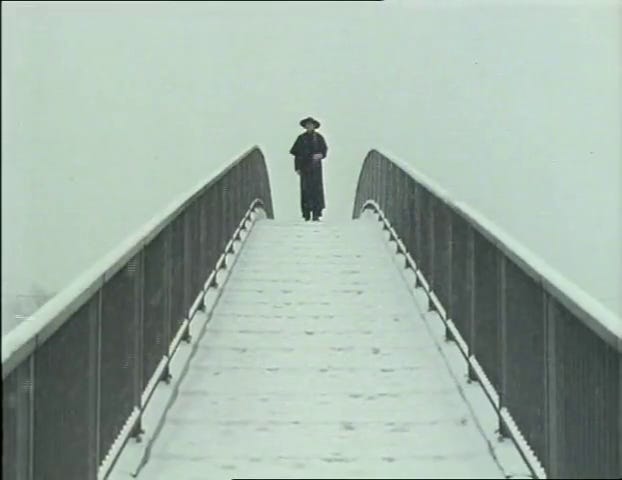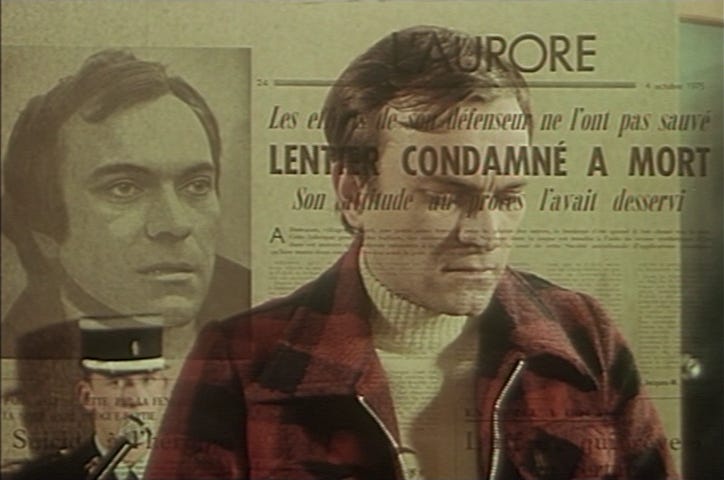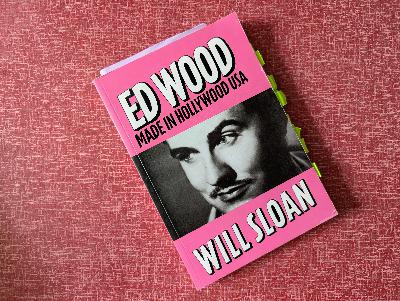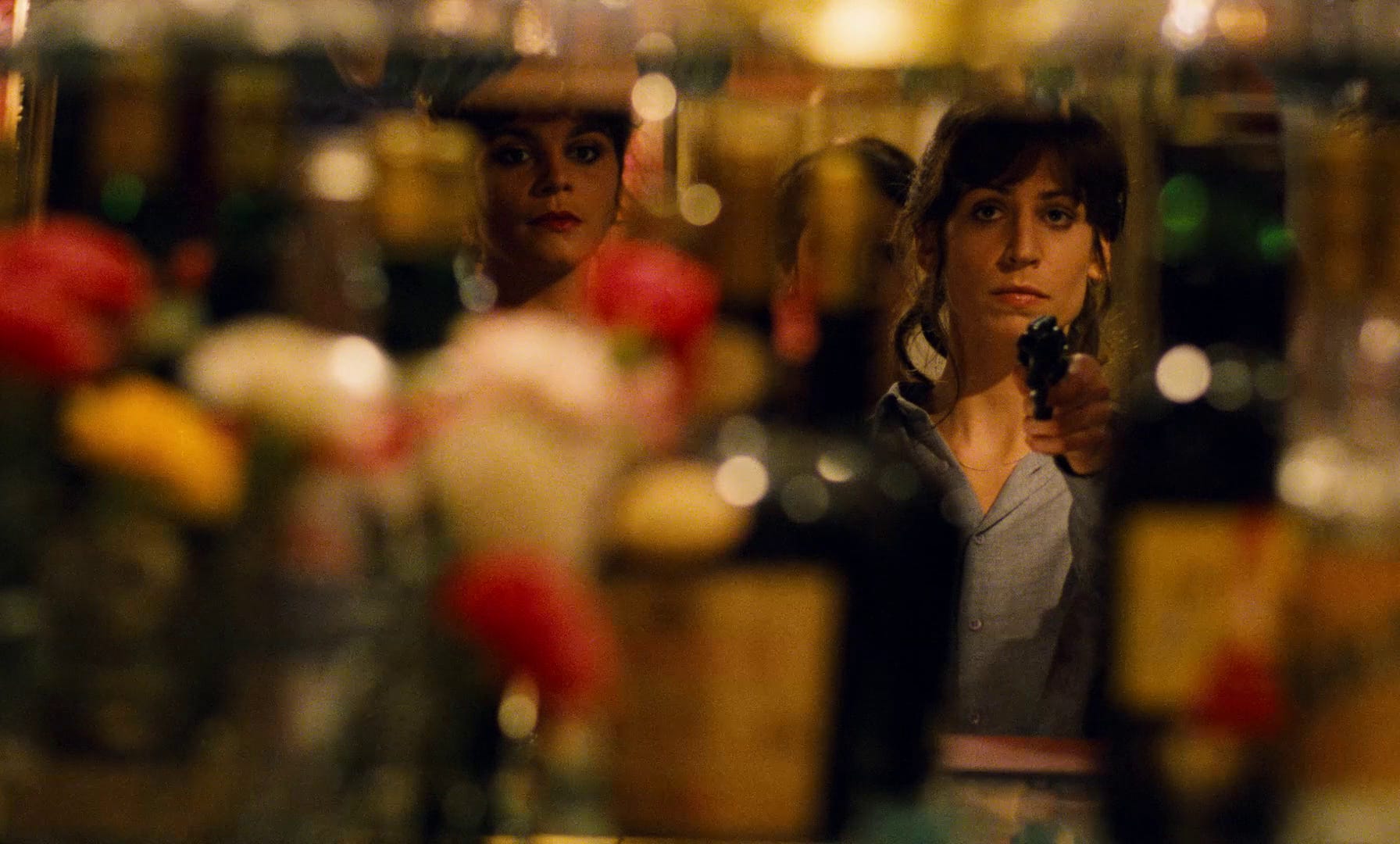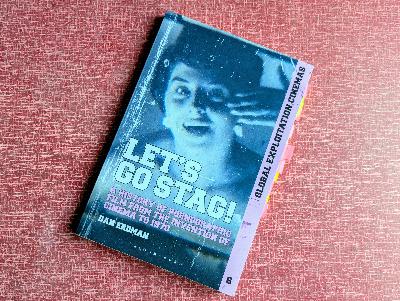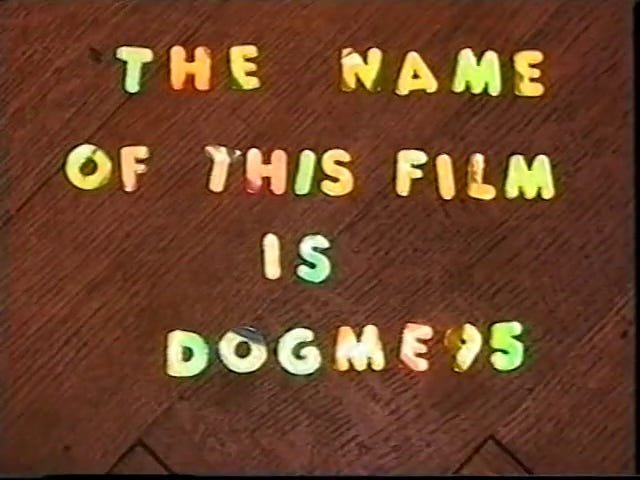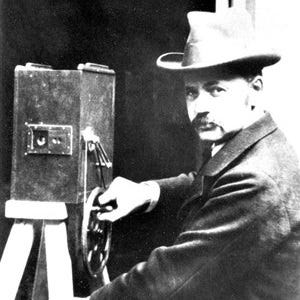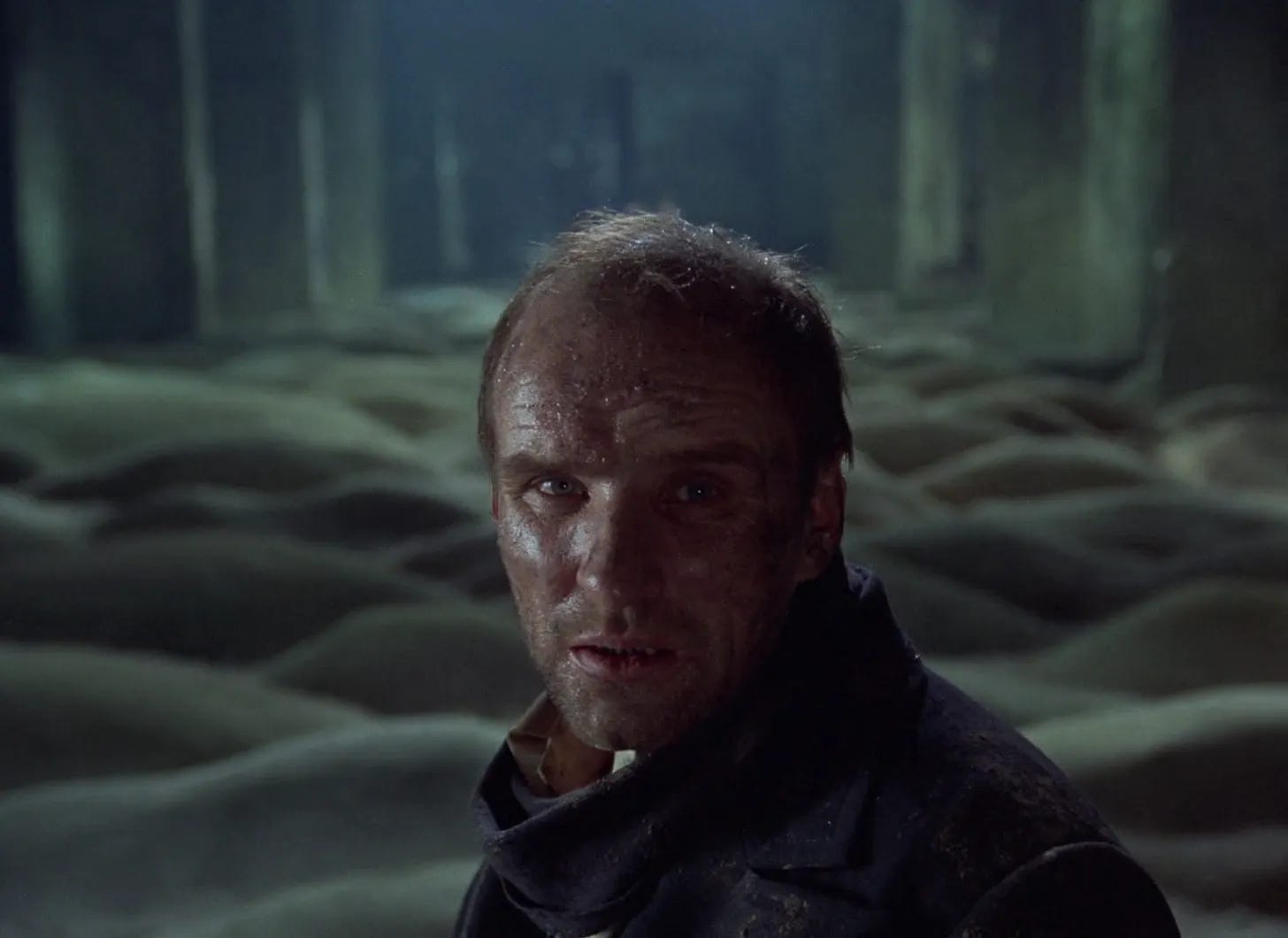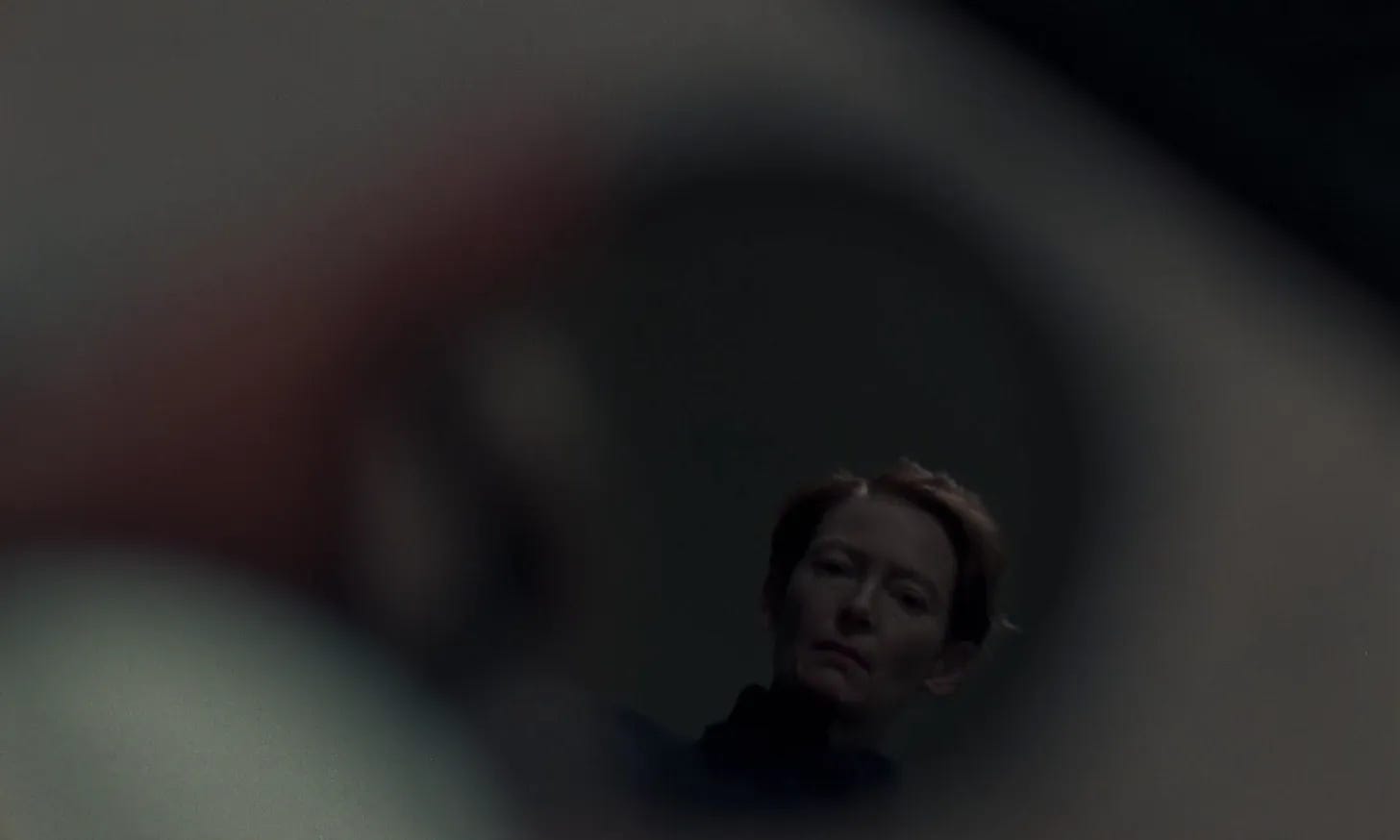Discover Cinéclub Podcast
Cinéclub Podcast

Cinéclub Podcast
Author: Joe Tindall
Subscribed: 1Played: 3Subscribe
Share
© Joe Tindall
Description
20 Episodes
Reverse
The BBC’s A Ghost Story for Christmas series ran from 1971 to 1978, and there are just eight episodes. But there is also a whole constellation of other films that have a similar strange, unsettling atmosphere. This episode explores three such examples.My guest is Ray Newman, and our conversation was prompted by a blog post he wrote, listing a series of these A Ghost Story for Christmas-esque films. From this post we chose three films: 1979’s Casting the Runes, directed by Lawrence Gordon Clark, the main man behind the BBC series; Baby, an episode of Nigel Kneale’s 1976 series Beasts; and The Woman in Black from 1989, also written by Kneale and directed by Herbert Wise.Ray really knows his ghost stories, and recently published a second collection of his own, Intervals of Darkness, which we discuss at the end of the episode. Links to book, along with Ray’s original blog post and more can be found in the shownotes below.You can also find this podcast on…* Apple Podcasts* Pocket Casts* I will no longer be uploading podcasts to Spotify and have removed all previous episodes of the podcast from that platform. It’s something I’ve been meaning to do for ages, because Spotify is a transparently evil company that delights in ripping off musicians, promoting AI slop, and enabling genocide in Palestine.Shownotes* Buy issue 2 of the Cinéclub fanzine* 44 pages w/ articles on Conrad Rooks’ bizarre, star-studded countercultural artifact Chappaqua, some shorter pieces on punk and film, and an essay linking Bertrand Tavernier’s 1974 film The Watchmaker of St. Paul (also known as The Clockmaker of St. Paul) to Paul Vecchiali’s La Machine from 1977. DIY and sold on a not-for-profit basis at a cost that just covers the cost of printing: £2.50 plus postage. Shipping internationally.* Ray’s website* The infinite supply of BBC ghost stories for Christmas (also here as a list on Letterboxd)* Info on Intervals of Darkness* Ray’s previous appearance on the Cinéclub podcast in 2024, discussing Joanna Hogg’s The Eternal Daughter and the relationship between film and his writing.* Derek Johnson’s book chapter The British Ghost Story at Christmas from his book Haunted Seasons: Television Ghost Stories for Christmas and Horror for Halloween - the source I used for background reading on the association between ghost stories and Christmas This is a public episode. If you would like to discuss this with other subscribers or get access to bonus episodes, visit cineclub.substack.com
Cinéclub Podcast number 19 is a special episode because it’s a tie-in with the release of the second edition of the Cinéclub fanzine. This issue features an article on Conrad Rooks’ bizarre, star-studded countercultural artifact Chappaqua, with a focus on the long saga of its production, some shorter pieces on punk and film, and an essay linking Bertrand Tavernier’s 1974 film The Watchmaker of St. Paul (also known as The Clockmaker of St. Paul) to Paul Vecchiali’s La Machine from 1977. It’s £2.50 plus postage, shipping internationally, and you can buy a copy here.It’s the latter film we’ll be focusing on in today’s episode, and to do so I was joined by Nick Newman. Nick is Managing Editor at The Film Stage, a freelance programmer, and most recently he launched a podcast, Emulsion, which I heartily recommend. As Nick mentioned in our conversation, I knew he was a fan of La Machine because he Tweeted about it around the time of Paul Vecchiali’s death in 2023. His Tweet stuck with me because this film is so often overlooked, even amongst the filmography of a still neglected director like Vecchiali. In the past few years, a few of Vecchiali’s films have been restored and re-released: in this episode we mention L’Etrangleur from 1970 and Rosa la rose, fille publique from 1986, recently reissued in the UK on Blu-ray by Radiance Films, but La Machine remains difficult to see. If you would like to see it, see the show notes below.Nick and I start by discussing Vecchiali’s background and his production company, Diagonale. We then get into the film, exploring its approach to genre, its representation of mass media, what it has to say about the death penalty, the reasons why the film still resonates today, and much more. I started by asking Nick about the broader post-New Wave cinema landscape in France and how this generation of filmmakers differed from the nouvelle vague that preceded them.Chapters00:02:39 - post-New Wave / post-1968 French cinema00:11:18 - Paul Vecchiali00:23:04 - Diagonale00:27:43 - La Machine and the crime genre00:37:55 - La Machine as commentary on the death penalty00:46:48 - the courtroom sequence00:51:14 - why La Machine still resonates todayYou can also find this podcast on…* Apple Podcasts* Pocket Casts* I will no longer be uploading podcasts to Spotify and have removed all previous episodes of the podcast from that platform. It’s something I’ve been meaning to do for ages, because Spotify is a transparently evil company that delights in ripping off musicians, promoting AI slop, and enabling genocide in Palestine.Shownotes* Buy issue 2 of the Cinéclub fanzine* 44 pages w/ articles on Conrad Rooks’ bizarre, star-studded countercultural artifact Chappaqua, some shorter pieces on punk and film, and an essay linking Bertrand Tavernier’s 1974 film The Watchmaker of St. Paul (also known as The Clockmaker of St. Paul) to Paul Vecchiali’s La Machine from 1977. DIY and sold on a not-for-profit basis at a cost that just covers the cost of printing: £2.50 plus postage. Shipping internationally.* Watch La Machine (I am sharing these links as, to the best of my knowledge, the film is not currently commercially available)* On YouTube (no English subtitles)* Via Google Drive * Nick’s writing, and episodes of his Emulsion podcast, at The Film Stage* Some useful articles on Paul Vecchiali* Essay on Rosa la rose, fille publique by Steve Macfarlane for Metrograph* Notebook Primer: Diagonale and Co. by Patrick Preziosi for Mubi Notebook* Diagonale and Us by Axelle Ropert for Screen Slate* Paul Vecchiali, a Cinematic Franc-Tireur by Daniel Fairfax for Senses of Cinema This is a public episode. If you would like to discuss this with other subscribers or get access to bonus episodes, visit cineclub.substack.com
Cinéclub Podcast #18 is a conversation with Will Sloan. You may know Will from his own podcasts: The Important Cinema Club which he co-hosts with Justin Decloux and Michael and Us, which he does with Luke Savage, which is a broader politics and culture podcast. In this episode, though, we’re focusing on Will’s new book, a study of the notorious Ed Wood, which is called Ed Wood: Made in Hollywood, USA. If you’re not familiar at all with Ed Wood, it’s probably best to first acknowledge that he is mostly famous for being a bad director and known particular for Plan 9 from Outer Space which is a common contender for worst film ever made. However he also has a cult following of admirers and even his own Hollywood biopic, directed by Tim Burton in 1994.Will’s book makes the case for Wood as an auteur, a filmmaker with a strong and distinctive creative voice despite, or in some cases maybe because of, the limited resources with which he worked and his limited ability to follow the accepted conventions of Hollywood film. Will writes the following to summarise a typical Ed Wood film: it is “ a pastiche of narrative/stylistic elements from other films; attempts to tell a story at a scale far beyond what its production value can accoomondate; features a case comprised of noth veteran former stars and unknown, awkward newcomers; and attempts natrualisim, but misses the mark, achieving instead an uncanny or dreamlike ambience.”Will and I discussed the personal nature of Wood’s debut, Glen or Glenda; the otherworldly, dreamlike quality of Jail Bait, his attempt at a film noir; the distinctive authorial voice in The Beauty and the Beast, every bit an Ed Wood film despite being directed by somebody else; the uncanny, atmospheric nature of Plan 9 from Outer Space, the self-awareness of The Sinister Urge, the invented happy ending of Tim Burton’s affectionate biopic, and the unexpectedly fun and upbeat feel of his late-period sexploitation film Take It Out in Trade, and much more.Chapters* Glen or Glenda (1953) - 00:07:46* Jail Bait (1954) - 00:15:07* The Bride and the Beast (Adrian Weiss, 1958) - 00:19:33 * Plan 9 From Outer Space (1957) - 00:24:10* The Sinister Urge (1970) - 00:27:26* Later career: sexploitation, pornography, novels - 00:31:39* Ed Wood (Tim Burton, 1994) - 00:35:12* Take It Out in Trade (1970) - 00:40:20You can also find this episode on…* Apple Podcasts * Pocket Casts* I will no longer be uploading podcasts to Spotify and have removed all previous episodes of the podcast from that platform. It’s something I’ve been meaning to do for ages, because Spotify is a transparently evil company that delights in ripping off musicians, promoting AI slop, and enabling genocide in Palestine.Shownotes* Will Sloan’s book, Ed Wood: Made in Hollywood, USA at OR Books* Will’s excellent Substack* The Important Cinema Club podcast* Michael and Us podcast* I’m linking to Pocket Casts, but of course, the podcasts are available on all the platforms you’d expect* The Ed Wood episode of Jonathan Ross’ The Incredibly Strange Film Show (1989)* Andrew Sarris’ Notes on the Auteur Theory in 1962* Embarassingly I say this essay is from 1960 in the podcast. The correct year of writing is in the very title of the essay…* Buy the Cinéclub fanzine* 52 pages w/ articles on cinematic representations of the German urban guerilla group The Red Army Faction, Claude Chabrol’s 1962 film The Third Lover’ and some pieces on punks in cinema. DIY and sold on a not-for-profit basis at a cost that just covers the cost of printing: £3.50 plus postage. This is a public episode. If you would like to discuss this with other subscribers or get access to bonus episodes, visit cineclub.substack.com
Cinéclub Podcast #17 is a conversation with Sue Thornham on the Dutch feminist filmmaker Marleen Gorris. Gorris made her debut with A Question of Silence in 1982. A provocative feminist film which uses and subverts popular genre conventions, as you’ll hear, it stirred up controversy amongst critics, particularly here in the UK. It was the first in what she envisaged as a series of four films, and was followed by Broken Mirrors, The Last Island and Antonia’s Line. The latter brought Gorris more commercial attention, attracting positive press, widespread distribution and even winning the Best Foreign Language Oscar in 1996. She went on to adapt Virginia Woolf’s Mrs. Dalloway, the first of a string of English-langiage films, but her later work was poorly distributed and fell into obscurity. Until recently, her early work, too, has been largely unavailable. Thankfully, her first three were lovingly restored and reissued by Cult Epics in 2023, and are now available again on DVD and Blu-Ray. Gorris herself has now retired from filmmaking.Sue Thornham is Professor Emeritus at the University of Sussex in Brighton, where she taught for many years and was, in fact, one of my tutors when I studied for my Master there. I mention that because it was in Sue’s Feminism and Film class that I first saw Broken Mirrors, when I was doing my Masters there, so I have her to thank for introducing me to Gorris’ work. In July this year Sue released an excellent book on Gorris. It’s called Marleen Gorris: Practices of Resistance and is published by Edinburgh University Press. Sue and I talked through Gorris’ career, including her tendency to play with genre, why her films rattled critics, themes of communities amongst women and the possibility of resisting patriarchy, the success of Antonia’s Line and the impact it might have had on her increasingly obscure later films, and more.I should warn you that there may be plot spoilers, but I would also say that these are not really the sort of films that rely on conventional plot twists and I don’t think there’s anything in this podcast that could really spoil the films but, now you know.Chapters* A Question of Silence (1982) - 00:09:39* Broken Mirrors (1984) - 00:16:49* The Last Island (1990) - 00:25:06* Antonia’s Line (1995) - 00:30:59* Mrs. Dalloway (1997) and The Luzhin Defence (2000) - 00:37:39* Carolina (2003) - 00:41:30* Within the Whirlwind (2009) - 00:44:01You can also find this episode on…* Apple Podcasts * Pocket Casts* I will no longer be uploading podcasts to Spotify and have removed all previous episodes of the podcast from that platform. It’s something I’ve been meaning to do for ages, because Spotify is a transparently evil company that delights in ripping off musicians, promoting AI slop, and enabling genocide in Palestine.Shownotes* Sue Thornham’s book Marleen Gorris: Practices of Resistance* The link has both print editions and the free Open Access PDF and ePub* The restored Marleen Gorris Triology at Cult Epics, including A Question of Silence, Broken Mirrors and The Last Island* Buy the Cinéclub fanzine* 52 pages w/ articles on cinematic representations of the German urban guerilla group The Red Army Faction, Claude Chabrol’s 1962 film The Third Lover’ and some pieces on punks in cinema. DIY and sold on a not-for-profit basis at a cost that just covers the cost of printing: £3.50 plus postage. This is a public episode. If you would like to discuss this with other subscribers or get access to bonus episodes, visit cineclub.substack.com
Cinéclub Podcast episode 16 is a conversation with the San Francisco-based experimental filmmaker Greta Snider. (In the podcast intro I say it’s episode 15 and I can’t find the time to go back and fix it!) Greta has been making films since the late 1980s, and around the same time, produced seven issues of a fanzine called Mudflap. For me, much of Greta’s work is characterised by a tactile, handmade feel and cut-up, collage-like effects that often drawn on recontextualised archive footage. We discuss the influence of punk and fanzine culture on Greta’s films, her experiences teaching experimental filmmaking, the role of politics in her work, her stereoscopic films, and much more.You can also find this episode on…* Apple Podcasts* Pocket Casts* I will no longer be uploading podcasts to Spotify and have removed all previous episodes of the podcast from that platform. It’s something I’ve been meaning to do for ages, because Spotify is a transparently evil company that delights in ripping off musicians, promoting AI slop, and enabling genocide in Palestine.Shownotes* Greta’s Vimeo page* Futility (1989)* Portland (1996)* The Magic of Radio (2001)* Greta’s bio at San Francisco State University* Info on That’s Rad: San Francisco Bay Area Zine Culture, the exhibition Greta mentions in the episode (at the San Francisco Public Library, running until 27th July 2025)* Buy the Cinéclub fanzine* 52 pages w/ articles on cinematic representations of the German urban guerilla group The Red Army Faction, Claude Chabrol’s 1962 film The Third Lover’ and some pieces on punks in cinema. DIY and sold on a not-for-profit basis at a cost that just covers the cost of printing: £3.50 plus postage. This is a public episode. If you would like to discuss this with other subscribers or get access to bonus episodes, visit cineclub.substack.com
Cinéclub podcast episode #15 is a conversation with Dan Erdman. As Dan mentions in the episode, his background is in archiving and preservation, and he works for the Chicago-based not-for-profit film and media archive Media Burn. You can find out more about them at their newly relaunched website, mediaburn.org. He also does a zine called Head Clog and, most importantly for this episode, he is the author of Let’s Go Stag: A History of Pornographic Film from the Invention of Cinema to 1970, published by Bloomsbury in 2021, and its this topic we’ll be focusing in the episode.We discuss the challenges facing archivists and historians researching old stag films, the ‘variety’ context in which they were originally shown, the vital social component of a stag film screening, the factors that led to the decline of the stag film in the 1960s, and much more.It was great talking to Dan: as I’m sure you’ll agree, he’s very engaging and funny and really makes this topic come alive. Please enjoy.You can also find this episode on…* Apple Podcasts * Pocket Casts* I will no longer be uploading podcasts to Spotify and have removed all previous episodes of the podcast from that platform. It’s something I’ve been meaning to do for ages, because Spotify is a transparently evil company that delights in ripping off musicians, promoting AI slop, and enabling genocide in Palestine.Shownotes* Info on Dan’s book, Let’s Go Stag: A History of Pornographic Film from the Invention of Cinema to 1970* Media Burn, the Chicago-based video archive Dan works for* Info on Dan’s zine, Head Clog* Linda Williams obituary in the New York Times* Buy the Cinéclub fanzine* 52 pages w/ articles on cinematic representations of the German urban guerilla group The Red Army Faction, Claude Chabrol’s 1962 film The Third Lover’ and some pieces on punks in cinema. DIY and sold on a not-for-profit basis at a cost that just covers the cost of printing: £3.50 plus postage. This is a public episode. If you would like to discuss this with other subscribers or get access to bonus episodes, visit cineclub.substack.com
In March 1995, the Danish filmmaker Lars von Trier stood on stage in the Odeon cinema in Paris, then holding a conference celebrating cinema’s first century, and read the Dogma 95 manifesto. Signed by von Trier and fellow Danish director Thomas Vinterberg, the Manifesto makes many references to the perceived failure of the French nouvelle vague movement of the 50s and 60s, and calls for the use of a raging “technological storm” to strip films of their cosmetics and their reliance on illusion. The reading ended with von Trier showering his audience in copies of the manifesto printed on distinctive red paper.Perhaps more famous than the manifesto itself is the accompanying ‘Vows of Chastity’ that Dogma filmmakers would commit to. The Vows are a series of creative restrictions: cameras must be handheld; locations and props must be real; only available light can be used, and genre films are prohibited.The first Dogma film was Vinterberg’s Festen in 1998, shortly followed by Von Trier’s The Idiots. Fellow Danes Sore Kragh-Jacobsen Kristian Levring joined the Dogma ‘brotherhood’, making Mifune (1999) and The King is Alive (2000) respectively. The project also travelled outside Scandinavia, with Jean-Marc Barr’s Lovers shot in France in 1999, and the American Harmony Korine’s Julien Donkey-Boy released the same year.I’m conscious that we don’t describe the plots of these films in much detail on the podcast. If you’re unfamiliar, here are some trailers that introduce the tone and style of Dogma 95 reasonably well, although they do use un-Dogma elements such as superimposed graphics and non-diegetic music.* Festen* The Idiots* Mifune* The King is Alive* Julien Donkey-BoyWe are now 30 years on from the initial disruption of the Dogma 95 project, and so it seems an apt moment to take stock of the movement and its relevance in 2025. So I spoke with Richard T. Kelly, of the aforementioned Dogme documentary and book. Richard and I discuss Lars von Trier’s work before Dogma 95, the distinctively Scandinavian flavour of the initial films, the common dismissal of Dogme as a brand or marketing exercise, the legacy of the movement, and more. Please enjoy.You can also listen to this podcast on…* Spotify* Apple Podcasts (I will update with the Apple link as soon as I can. There is a lag between publishing the podcast and it appearing there.)Shownotes* The text of the Dogma 95 manifesto* The ‘Vow of Chastity’* The Name of This Film is Dogme95* Extract demonstrating the rules as mentioned by Richard in the podcast* The Name of This Book is Dogme95* The book is now out of print, but available from libraries or from second-hand booksellers such as Abe Books* It is also available in a Kindle edition* Richard’s website* Order The Black Eden, Richard’s latest novel* Aksel Sandemose’s ‘Law of Jante’ This is a public episode. If you would like to discuss this with other subscribers or get access to bonus episodes, visit cineclub.substack.com
When the French film historian George Sadoul coined the term ‘The Brighton School’ in 1945, he was primarily referring to two important filmmakers who began working in the late 1800s: James Williamson, and his friend George Albert Smith, though both lived and worked (to cite a well-worn local phrase) in “Hove, actually.” This podcast has covered G.A. Smith before, in the very first episode from January 2024. Back then, I spoke to Dr. Frank Gray, author of The Brighton School and the Birth of British Film, and I’m very happy to have Frank back for this episode to talk about James Williamson.Frank and I discuss Williamson’s encounters with Thomas Edison’s Kinetoscope; his background as a chemist; his relationship with George Albert Smith; the innovation of his films Attack on a China Mission and Fire!, and more.You can also find this episode on…* Apple Podcasts * Pocket Casts* I will no longer be uploading podcasts to Spotify and have removed all previous episodes of the podcast from that platform. It’s something I’ve been meaning to do for ages, because Spotify is a transparently evil company that delights in ripping off musicians, promoting AI slop, and enabling genocide in Palestine.Show notes* Buy the Cinéclub fanzine* 52 pages w/ articles on cinematic representations of the German urban guerilla group The Red Army Faction, Claude Chabrol’s 1962 film The Third Lover’ and some pieces on punks in cinema. DIY and sold on a not-for-profit basis at a cost that just covers the cost of printing: £3.50 plus postage.* James Williamson films* Devil’s Dyke Fun Fair (estimated 1896)* Attack on a China Mission (1900)* Stop Thief! (1901)* Fire! (1901)* More on BFI Player* The Cinéclub podcast on George Albert Smith, also featuring Frank Gray* Casting Shadows, a Radio 4 drama about early filmmaking in Brighton and Hove, including Williamson and Smith. Narrated by Frank Gray* Edwin S. Porter’s The Life of an American Fireman (1903)* Original version* Porter’s later re-cut version* Info on Hove Museum’s film collection, which includes James Williamson-related artefactsBibliography* David Fisher, Cinema By Sea: Film and Cinema in Brighton & Hove Since 1896 (Brighton: Terra, 2012)* Frank Gray, The Brighton School and the Birth of British Film (London: Palgrave Macmillan, 2019)* Martin Sopocy, James Williamson: Studied and Documents of a Pioneer of the Film Narrative (London: Associated University Presses, 1998)* Martin Sopocy, Postscripts to James Williamson in Film History, Vol. 22 No. 3 (2010) p.313-328 This is a public episode. If you would like to discuss this with other subscribers or get access to bonus episodes, visit cineclub.substack.com
Happy new year, and welcome to Cinéclub podcast number 12. For this episode I was very lucky to talk with John Smith, a London-based experimental filmmaker who has been working since the early 1970s. John’s films include The Girl Chewing Gum from 1976, The Black Tower from 1985, Slow Glass, made between 1988 and 1981, and the Hotel Diaries series which ran from 2001 until 2007. His latest, Being John Smith, uses his very common and un-Googleable name and its effect on his life and work as a way to explore themes of celebrity, mortality, how to make art in a global crisis, and much more. The film will be showing as part of a gallery exhibition at the Kate McGarry Gallery in Shoreditch in East London between 18th January and 15th February 2025. There’s a link to the show in the shownotes for this episode.John and I discuss the influence of the London Filmmakers Co-Op, his signature blend of the mundane and the profound, the role of politics, humour and documentary in his work, and more. Please enjoy.You can also find this episode on…* Apple Podcasts * Pocket Casts* I will no longer be uploading podcasts to Spotify and have removed all previous episodes of the podcast from that platform. It’s something I’ve been meaning to do for ages, because Spotify is a transparently evil company that delights in ripping off musicians, promoting AI slop, and enabling genocide in Palestine.Show notes* Buy the Cinéclub fanzine* 52 pages w/ articles on cinematic representations of the German urban guerilla group The Red Army Faction, Claude Chabrol’s 1962 film The Third Lover’ and some pieces on punks in cinema. DIY and sold on a not-for-profit basis at a cost that just covers the cost of printing: £3.50 plus postage.* John Smith’s website* Info on The Girl Chewing Gum and The Man Phoning Mum* Info on The Black Tower* Info on Slow Glass* Info on the Hotel Diaries series* Info on Being John Smith* Info on John’s exhibition at the Kate McGarry Gallery, 18th January - 15th February 2025* 20 of John’s films on the DAFilms streaming platform* Erika Balsom’s excellent dossier on The Girl Chewing Gum for the Tate Gallery* Includes material on John’s experiences at the London Filmmaker’s Co-Op (discussed in the podcast episode) and much more This is a public episode. If you would like to discuss this with other subscribers or get access to bonus episodes, visit cineclub.substack.com
Cinéclub Podcast #11 is the second edition of the podcast designed to tie in with the release of the Cinéclub fanzine, which came out last month. The zine features a big piece on cinematic treatments of the German urban guerilla group The Red Army Faction and one key film there is The Lost Honour of Katharina Blum from 1976, directed by Volker Schlöndorff and Margharethe von Trotta and based on the book by Heinrich Boll.The eponymous protagonist of Katharina Blum is an ordinary woman who finds herself the subject of a police raid and subsequent interrogation after spending the night with a suspected member of an RAF-style terrorist group. She is hounded by the media, who collude unethically with the police, and push to her limits. The film ends with a shooting.To find out more I spoke to Julian Preece. Julian is a Professor of German at Swansea University and the author of a BFI Classics monograph on The Lost Honour of Katharina Blum which was released in 2022, as well as Baader-Meinhof and the Novel, published in 2012, and various articles in academic journals on the RAF or, as he refers to them in this discussion, the ‘RAF’.In our conversation we discuss the New German Cinema; the theme of surveillance; the film’s references to famous media images of the Red Army Faction; the importance of the musical score; and the subsequent films the directors made on similar subjects.You can also find this episode on…* Apple Podcasts* Pocket Casts* I will no longer be uploading podcasts to Spotify and have removed all previous episodes of the podcast from that platform. It’s something I’ve been meaning to do for ages, because Spotify is a transparently evil company that delights in ripping off musicians, promoting AI slop, and enabling genocide in Palestine.Show notes* Buy the Cinéclub fanzine* The ‘Red Army Faction on Film’ article includes writing on The Lost Honour of Katharina Blum as well as The German Sisters and The Legend of Rita, also discussed in the episode* Julian’s BFI Classics book on The Lost Honour of Katharina Blum* Julian’s book Baader-Meinhof and the Novel* The Lost Honour of Katharina Blum is, frustratingly, not available to stream at present. It is available on Blu-ray in the following editions:* Studio Canal* Criterion Collection This is a public episode. If you would like to discuss this with other subscribers or get access to bonus episodes, visit cineclub.substack.com
This is a very special edition of the podcast because it’s a celebration of the first Cineclub Fanzine which is now available. It’s 52 pages and covers cinematic representations of the German urban guerilla group The Red Army Faction from the 1960s to the late 2000s, Claude Chabrol’s 1962 film ‘The Third Lover’, and some pieces inspired by the excellent book Destroy All Movies on punks in cinema. It’s very DIY and sold on a not-for-profit basis at a cost that just covers the cost of printing, and it’s yours for £3.50 plus postage. Buy it here.So this episode is a celebration of film fanzines, and of fanzines in general. It features a conversation with Teal Triggs, a Professor at the Royal College of Art and the author of the book Fanzines, a beautiful collection of zines with insightful essays. I also talk to Jay Hinman. Jay has released a cinema zine called Film Hemmorhage. but also runs various zine-related projects including the music zine Radio Dies Screaming and a website dedicated to fanzines called Fanzine Hemorrhage. This is a public episode. If you would like to discuss this with other subscribers or get access to bonus episodes, visit cineclub.substack.com
Cinéclub episode #9 is a conversation with Toby Amies. Toby is a documentary filmmaker, director of the features The Man Whose Mind Exploded from 2012, and In The Court of the Crimson King: King Crimson at 50 from 2022. We spoke online earlier in the year and discussed Toby’s previous life as a presenter on MTV, how he met Drako, the star of The Man Whose Mind Exploded, documentary ethics, working with Robert Fripp, and much more. You can also find this episode on…* Apple Podcasts* Pocket Casts* I will no longer be uploading podcasts to Spotify and have removed all previous episodes of the podcast from that platform. It’s something I’ve been meaning to do for ages, because Spotify is a transparently evil company that delights in ripping off musicians, promoting AI slop, and enabling genocide in Palestine.Show notes* Toby’s website* Watch The Man Whose Mind Exploded for free - Vimeo / Youtube* The website for In the Court of the Crimson King, with links to watch the film on various platforms* Slate article on Todd Phillips’ Hated: GG Allin & the Murder Junkies (1993)* New Yorker article on Ross McElwee (Sherman’s March, 1986) This is a public episode. If you would like to discuss this with other subscribers or get access to bonus episodes, visit cineclub.substack.com
Cinéclub Podcast #8 is a conversation with Daniel van der Velden, who works alongside Vinca Kruk under the name Metahaven. They are based in the Netherlands and produce all kinds of interesting work including graphic design work, films, and writing, including their essay Digital Tarkovsky which was published in book form in 2018. A recent bio is below:The work of Metahaven encompasses filmmaking, writing, and design. Their films include The Feeling Sonnets (Transitional Object) (2024), Chaos Theory (2021), Hometown (2018), and Information Skies (2016), nominated for the European Film Awards 2017. Their films have been screened at festivals including CPH:DOX, Docs Against Gravity, IFFR, and others. Metahaven’s recent publications include Digital Tarkovsky (2018), a book-length essay about cinema. Metahaven has presented solo exhibitions at MoMA PS1, New York, ICA, London, Guggenheim Museum Bilbao, Yerba Buena Center for the Arts, San Francisco, Izolyatsia, Kyiv, e-flux, New York, State of Concept Athens, and Stedelijk Museum Amsterdam, among others, as well as participated in group exhibitions at Artists Space, New York, the Museum of Modern Art Warsaw, Ghost: 2561, Bangkok, M HKA, Antwerp, the Gwangju Biennale, the Sharjah Biennial, and many others. In Digital Tarkovsky, Metahaven use the films of Andrei Tarkovsky to imagine new possibilities for filmmaking and digital technology. This conversation with Daniel was recorded back in June, and we discussed the links between smartphones and film, the concept of “sloppy time”, the potential for artificial intelligence to create a new form of cinema, how our changing sense of duration in the digital realm might be considered Tarkovskyan, and much more. You can also find this podcast on…* Apple Podcasts* Pocket Casts* I will no longer be uploading podcasts to Spotify and have removed all previous episodes of the podcast from that platform. It’s something I’ve been meaning to do for ages, because Spotify is a transparently evil company that delights in ripping off musicians, promoting AI slop, and enabling genocide in Palestine.Show notesLinks below to some of the things we mention in the episode* Digital Tarkovsky as a free PDF file* Buy Digital Tarkovsky in book form* This is the only UK seller I can find who still has copies of the book, which is out of print. I haven’t used the site so can’t personally vouch for it, but it does appear to be in stock.* Metahaven’s website* Metahaven’s Linktree* Links here to commentary on Metahaven’s work, talks they have given, etc.* Metahaven on Instagram* The apple sequence from Once Upon a Time in Antaloia (Nuri Bilge Ceylan, 2011)* Information on Metahaven’s film Chaos Theory This is a public episode. If you would like to discuss this with other subscribers or get access to bonus episodes, visit cineclub.substack.com
Cinéclub Podcast #7 is a conversation with John Higgs, author of books such as William Blake vs The World, I Have America Surrounded: The Life of Timothy Leary and Stranger Than We Can Imagine: Making Sense of the Twentieth Century. For today’s episode, we focused mostly on his most recent book, Love and Let Die: Bond, The Beatles and the British Psyche, with a short diversion into the film work of the ectronic music duo The KLF, whose story John grappled with in his excellent book The KLF: Chaos, Magic and the Band Who Burned a Million Pounds.We discuss Sean Connery’s influence on shaping the cinematic Bond, The Beatles’ diversions in Bond’s universe in Help!, George Lazenby’s more vulnerable character in On Her Majesty’s Secret Service, the contemporary reception and lasting influnce of Magical Mystery Tour, and the future of the Bond franchise. Plus, some chat about the KLF’s film ventures: Waiting, The White Room and Rites of Mu, as well as the video Watch the K Foundation Burn a Million Quid.You can also find this podcast on…* Apple Podcasts* Pocket Casts* I will no longer be uploading podcasts to Spotify and have removed all previous episodes of the podcast from that platform. It’s something I’ve been meaning to do for ages, because Spotify is a transparently evil company that delights in ripping off musicians, promoting AI slop, and enabling genocide in Palestine.Show notesLinks below to some of the things we mention in the episode* John’s website* Info on Love and Let Die: Bond, The Beatles and the British Psyche* Info on The KLF: Chaos, Magic and the Band Who Burned a Million Pounds* East Sussex Psychedelic Film Club* Instagram* Twitter* Facebook* BFI compilation of KLF films/videos: 23 Seconds to Eternity* Blu-ray/DVD* On BFI Player* Waiting (Bill Butt, 1990) This is a public episode. If you would like to discuss this with other subscribers or get access to bonus episodes, visit cineclub.substack.com
In 2024, things might look bleak for communal film culture. Cinema attendance has been stubborn to return to pre-pandemic levels, and the abundance of choice on streaming services or, for the concerted cinephile, boutique Blu-ray labels, can’t be helping. But despite all this, over the last few years a healthy number of film clubs, societies and small programming strands have sprung up, mostly run by enthusiasts rather than professionals. To find out more, I spoke to London’s Ciné-Real, a film club that screens almost exclusively from 16mm prints, and Brighton’s Electric Blue Cinema, an experimental screening space run outside of traditional cinema settings.You can also find this podcast on…* Apple Podcasts* Pocket Casts* I will no longer be uploading podcasts to Spotify and have removed all previous episodes of the podcast from that platform. It’s something I’ve been meaning to do for ages, because Spotify is a transparently evil company that delights in ripping off musicians, promoting AI slop, and enabling genocide in Palestine.Show notes* Ciné-Real website* Electric Blue Cinema on Instagram* Other Sussex film clubs and programmers mentioned in the episode* Kino Collective* Depot Cinelogue* Lazy Girls Film Club* Worthing Film Club* East Sussex Psychedelic Film Club This is a public episode. If you would like to discuss this with other subscribers or get access to bonus episodes, visit cineclub.substack.com
Content warning: Beijing Swings contains some difficult, disturbing imagery that’s not for everyone. Some of the links on this page should be approached with caution, and this episode of the podcast contains discussion of some of the film’s challenging content.At 11:20pm on Thursday 2nd January 2003, 3.4 million people in the UK tuned in to watch Beverly Hills Cop II on BBC One. Another 900,000, though, were over only Channel 4, 15 minutes in to the documentary Beijing Swings. I was one of them.Controversy began even before the programme aired. On 30th December, The Guardian reported that Channel 4 planned to broadcast images of a man, quote, “biting into the body of a stillborn infant”, and, “a man drinking wine that has had an amputated penis marinaded in it.” They quoted the then-Conservative MP Ann Widdecombe, who said, “Jesus Christ said suffer for the little ones to come unto me, not that they should be eaten for public entertainment. This programme sounds hideous.” The film’s presenter, art critic Waldemar Januszczak, says that such moralising missed the point of the documentary. In our conversation we discuss the changing face of Beijing as it prepared for the 2008 Olympic Games; Waldemar’s ‘participatory’ approach to documentary; his interview with Zhu Yu, the man behind the controversial performance piece Eating People; authenticity in Chinese art; and the sorry state of arts programming on British television today.You can also find this podcast on…* Apple Podcasts* Pocket Casts* I will no longer be uploading podcasts to Spotify and have removed all previous episodes of the podcast from that platform. It’s something I’ve been meaning to do for ages, because Spotify is a transparently evil company that delights in ripping off musicians, promoting AI slop, and enabling genocide in Palestine.Show notes* Beijing Swings on Youtube* Kazakhstan Swings, the less controversial (but also very good) follow-up, on Youtube* ZCZ Films, Waldemar’s production company* The Real Thing, a column by Waldemar from 2004, in which he reflects on making Beijing Swings and the then-booming market in Chinese art* Info on the work by Beijing East Village artists at the Tate Modern* Contemporary coverage of Beijing Swings* The Guardian - C4 to show artist eating dead baby (30/12/2002)* Ros Coward - Perverts and narcissists (The Guardian, 1/1/2003)* BBC News - Baby-eating art show sparks upset (3/1/2003)* The Guardian - Reprimand over C4 cannibal ‘art’ (11/3/2003)* Anne Widdecombe’s motion condemning Beijing Swings, tabled in Parliament 3/4/2003 This is a public episode. If you would like to discuss this with other subscribers or get access to bonus episodes, visit cineclub.substack.com
Cinéclub Podcast #4 is a conversation with Juliet Jacques. I wanted to talk to Juliet for a couple of reasons. Firstly she has written extensively and broadly about film, including work published by Sight and Sound, Criterion Current, Frieze, The Guardian, Novara Media and many more. Secondly I’m a big fan of her book Trans: A Memoir, published in 2015. The book started life as a series of blogs for the Guardian called Transgender Journey, which charted the process of Juliet’s transition, and incorporates trans history and critiques of trans representation, including in film.In our conversation we discuss her formative experiences at the Cornerhouse cinema in Manchester and the Brighton Cinematheque; transgender representation in films such as Rainer Werner Fassbinder’s In a Year of 13 Moons and Neil Jordan’s The Crying Game; Rosa von Prauheim’s City of Lost Souls; the joys of Ubuweb; and the three films Juliet has made: Approach/Withdraw, which she co-directed with Ker Wallwork in 2016; You Will be Free from 2017, and the documentary Revivification from 2018.You can also find this podcast on…* Apple Podcasts* Pocket Casts* I will no longer be uploading podcasts to Spotify and have removed all previous episodes of the podcast from that platform. It’s something I’ve been meaning to do for ages, because Spotify is a transparently evil company that delights in ripping off musicians, promoting AI slop, and enabling genocide in Palestine.Show notesLinks below to some of the things we mention in the episode* Juliet Jacques’ website* Jean-Luc Godard Saved My Life* Finding a Home in the Avant-Garde - on the London Filmmaker’s Co-Op * (nostalgia) * 10 Great Transgender Films - including The Crying Game* City of Lost Souls* Juliet’s book, Trans: A Memoir* Juliet’s films* Approach/Withdraw* You Will Be Free* Revivification* Other films discussed in the episode* The Crying Game BFI DVD/Blu-ray (liner notes contain an essay by Juliet)* City of Lost Souls on BFI Player* Clocktime Trailer (Stuart Pound, 1972)* Speak (John Latham, 1962)* (nostalgia) (Hollis Frampton, 1971) This is a public episode. If you would like to discuss this with other subscribers or get access to bonus episodes, visit cineclub.substack.com
Cinéclub Podcast #3 is a conversation with Ray Newman. Ray is a writer of fiction, including the novel The Gravedigger’s Boy (2019) and short story collection Municipal Gothic (2022). He also writes about film on his website, with an interest in British film of the 60s and 70s. In this episode we discuss Ray’s work, including ghost stories in council houses, haunted films, sex and sickness in British cinema and new towns on film.Ray and I also talk about Joanna Hogg’s 2023 film The Eternal Daughter, a sort-of ghost story set in an eerily deserted Welsh hotel. We discuss the film’s exploration of pre-emptive grief, agins, representing loved ones in art, and the use of genre tropes nodding to films like The Shining or the BBC’s Ghost Stories for Christmas series. This is a public episode. If you would like to discuss this with other subscribers or get access to bonus episodes, visit cineclub.substack.com
Cine Blatz, Meatdaze, Kino Stacatto, Pulverised Cinema. These are just a few of the mysterious titles from the sprawling filmography of Jeff Keen, the Brighton-based experimental filmmaker and artist, whose career spanned from the late 1950s to his death in 2012.In Jeff’s films friends and family adopt star personas yanked from Hollywood B-movies, creation and destruction intermingle and, typically, everything moves at a breakneck pace. This podcast explores Jeff’s life and work in film and beyond, including his experiences in the Second World War; his involvement in the swinging scene surrounding Better Books in the 1960s; his love of Hollywood; and his collaboration with his wife, Jackie.Chapters* 00:01:13 - Intro to Stella Keen and John Marchant* 00:05:25 - Jeff’s life before filmmaking* 00:07:49 - Brighton and first experiments with film* 00:10:00 - Better Books* 00:13:17 - London Filmmakers Co-op* 00:16:46 - War in Jeff’s films* 00:20:37 - Jeff’s love of film, and film references in his work* 00:23:53 - Jeff’s wife, Jackie, and their creative collaboration* 00:30:40 - Jeff’s work outside of film* 00:34:22 - maintaining the archive* 00:39:16 - Jeff’s legacyYou can also find this podcast on…* Apple Podcasts * Soundcloud * Pocket Casts* I will no longer be uploading podcasts to Spotify and have removed all previous episodes of the podcast from that platform. It’s something I’ve been meaning to do for ages, because Spotify is a transparently evil company that delights in ripping off musicians, promoting AI slop, and enabling genocide in Palestine.This podcast includes contributions from Stella Keen, Jeff’s daughter, and gallerist John Marchant, who recently hosted a show of Jeff’s work at his Brighton gallery.You can email me at atthecineclub@gmail.com.Show notesLinks to some of Jeff’s films:Marvo Movie (1967)Cineblatz (1967)White Lite (1968)Rayday Film (1968-76)Jeff Keen Films (Channel 4 documentary on Jeff, 1983)Other links* Jeff’s website * Stella’s website* John Marchant gallery* Gazwrx, BFI box set of Jeff’s films This is a public episode. If you would like to discuss this with other subscribers or get access to bonus episodes, visit cineclub.substack.com
The 4th of January 2024 marks the 160th birthday of the Hove filmmaker George Albert Smith. To celebrate, this podcast takes a deep dive into Smith’s life and career including his involvement in spooky ‘thought transferrances’ experiments; the nature of his collaboration with his wife, the actress Laura Bailey; the films in which he expanded film grammar to include close-ups and sophisticated editing; and his experiments with colour.This episode includes contributions from Dr. Frank Gray, author of The Brighton School and the Birth of British Film, and Alexia Lazou, assistant curator at Hove Museum.Visit cineclub.substack.com for show notes and more. Email at atthecineclub@gmail.com This is a public episode. If you would like to discuss this with other subscribers or get access to bonus episodes, visit cineclub.substack.com


